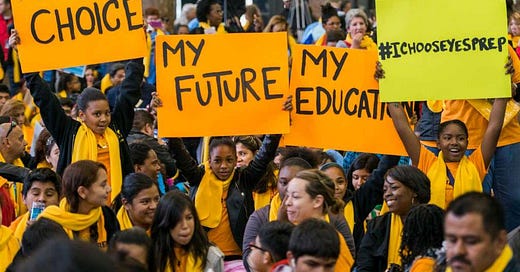What Do You Do When The Supreme Court Is Wrong?
An issue where the burden falls heaviest on the least fortunate...sounds familiar.
I was taking some time off this week, the shad are running among other things. But it's not every day a draft Supreme Court case leaks. Juicy Supreme Court leaks, at least historically, are once a decade kind of things.
Unless you live in a cave you certainly heard about the leak of a draft opinion in the Mississippi abortion case that would overturn the 1973 Roe v. Wade decision.
I'm not going to try to change your mind one way or another about abortion. That's a fool's errand and as Caitlin Flanagan recently pointed out it's basically an unreconcilable issue.
Instead, I will point you to a few education angles. Not in the ironic, there's always an education angle kind of way, this is too serious. There are, though, some parallels.
For starters, there is a lot of confusion in the moment. If the draft is the way the Supreme Court goes (an actual "if" it should be noted) it would not ban abortion. Rather, it would return the issue to the states and the political process - and some of them have laws that would immediately ban it, many don't. So as with a lot of education policy questions Twitter is probably not the best place to get your information.
The practical effect would be, according to experts, roughly a 13 percent decline in legal abortions. It's hard to square that with some of the sky is falling rhetoric except that the burden will fall heaviest on those least able to evade the consequences because they lack financial means and other resources.
In other words, that 13 percent is not equitably distributed across the population, it's concentrated among women who lack money and power. That, of course, sounds an awful lot like the school choice debate: A hothouse political question where the consequences are most acute and immediate for those with the least political power because everyone else can figure out workarounds. Except, obviously, overall the political positions are reversed on the two issues.
Finally, if you're pro-choice and wondering what now, there is an essay by the late Democratic Senator Daniel Patrick Moynihan, "What do you do when the Supreme Court is Wrong" that is an excellent look at the question the title implies. Even better, it's in part about education with fascinating education history.




